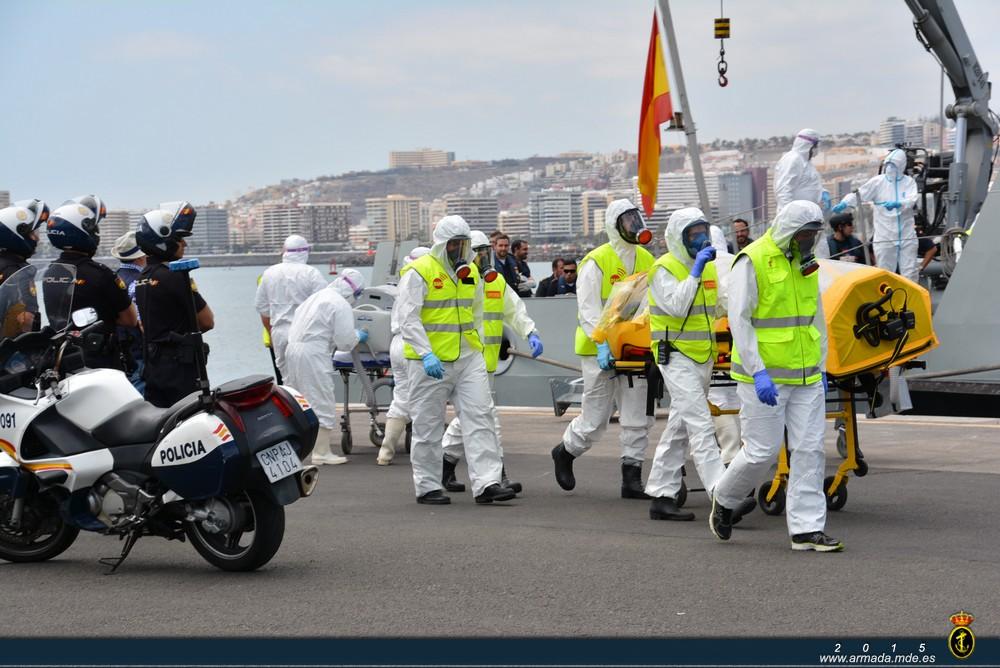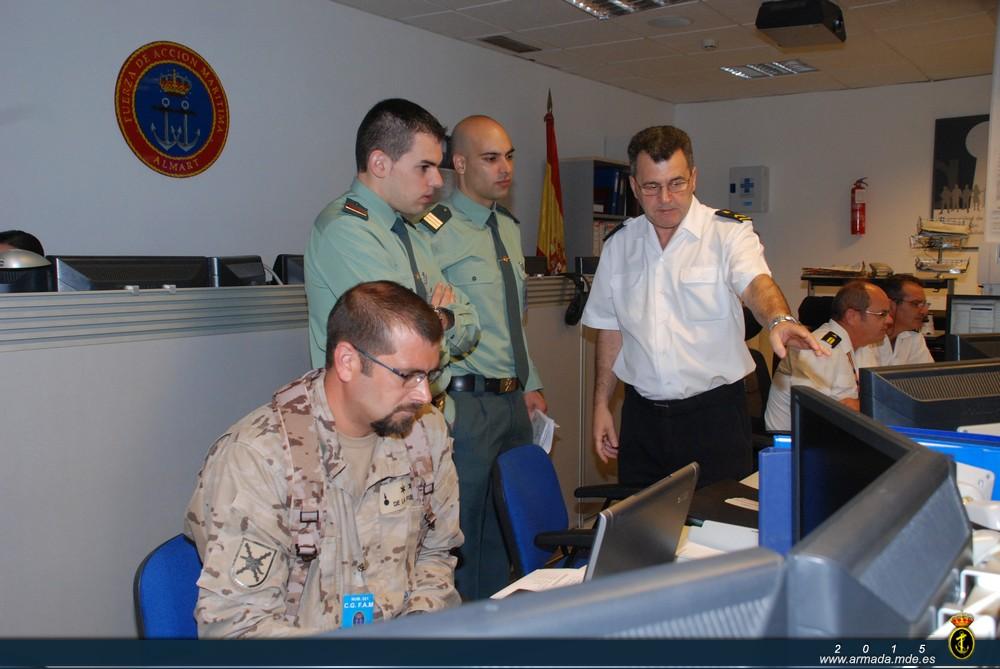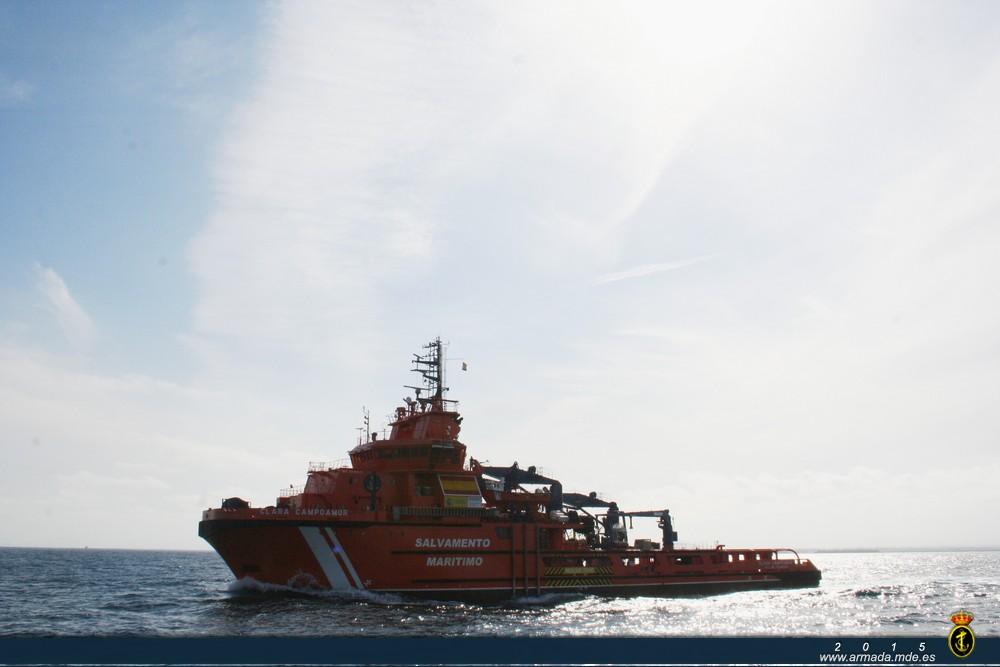The Spanish Navy will conduct training exercises in the course of two weeks with up to 25 Public Administration Departments
Monday, May 11, 2015
Between May 12th and June 1st, the Spanish Navy has scheduled a series of joint maritime security exercises with 25 national, regional and local departments with responsibilities in the maritime domain, in 11 different scenarios throughout the Spanish coast.
MARSEC 2015 is intended to test the collaboration capabilities of the Spanish Navy Maritime Action Force with other State Departments in tasks of maritime security; namely, planning and conduction of protection operations in area of national interest, covering a wide range of situations.
Other tasks include coordination in the fight against drug trafficking, illegal immigrations, medical control of immigrants, diving activities, shipping control, and search and rescue operations at sea.
For MARSEC 2015 the Spanish Navy is providing 10 naval units and more than 400 servicemen from the Maritime Action Force and the Marine Corps.
Participating Public Administrations include units and personnel from –among others– the Police, the Guardia Civil (Gendarmerie), Fisheries Secretariat, Customs Police, Maritime Security and SAR Centre, National Anti-terrorist Centre, etc.
Observers from allied nations have been invited to attend different stages of the exercise.
The main peculiarity of this exercise is that it brings together the endeavors of many military, civilian, official and non-governmental departments and organizations entrusted with the protection of our national interests.
MARSEC 2015 is being organized and directed by the Fleet Commander (ALFLOT in its Spanish Initials) and the planned scenarios are as follows:
SCENARIO 1: Spanish territorial waters. Enhance and improve the tasks of the National Cooperation and Guidance for Shipping (NCAGS).
SCENARIO 2: Territorial waters from Cape Palos to Castellon. Implementation of the Maritime Security and Surveillance Plan. Improve training and coordination between the Spanish Navy and the Guardia Civil in the management of Maritime Security issues: search, tracking, detection and boarding of ships at sea.
SCENARIO 3: Protection and security of civilian ports (Málaga, Mallorca and Tarragona)
SCENARIO 4: Canary Islands and approaches. Exercise to counter illegal activities: maritime terrorism, drug trafficking, emergency situations in port, security of port facilities, and public health issues in the event of radioactive pollution.
SCENARIO 5: Tenerife. Drug trafficking and counter-terrorist operations.
SCENARIO 6: Barcelona. Ship-chandler informs that a merchant ship from Sierra Leona is about to arrive with several stowaways with possible serious and infectious diseases.
SCENARIO 7: Alboran Sea. Spanish Navy collaboration with the Customs Police.
SCENARIO 8: Galicia. Collaboration of the Spanish Navy with the Air Force and SASEMAR in search and rescue operations.
SCENARIO 9: Deployment of the 4th Coastal Artillery Regiment in the COVAM (Maritime Surveillance and Operations Centre). Integration between RACTA-4/COVAM for awareness and monitoring of the maritime situation (Strait of Gibraltar, Cartagena and Almería).
SCENARIO 10: Almería. Integration of Constabulary elements in Spanish Navy warships.
SCENARIO 11: Murcia waters. Collaboration with the Fisheries Secretariat simulating robbery and destruction of underwater cages.




 + 2
+ 2


